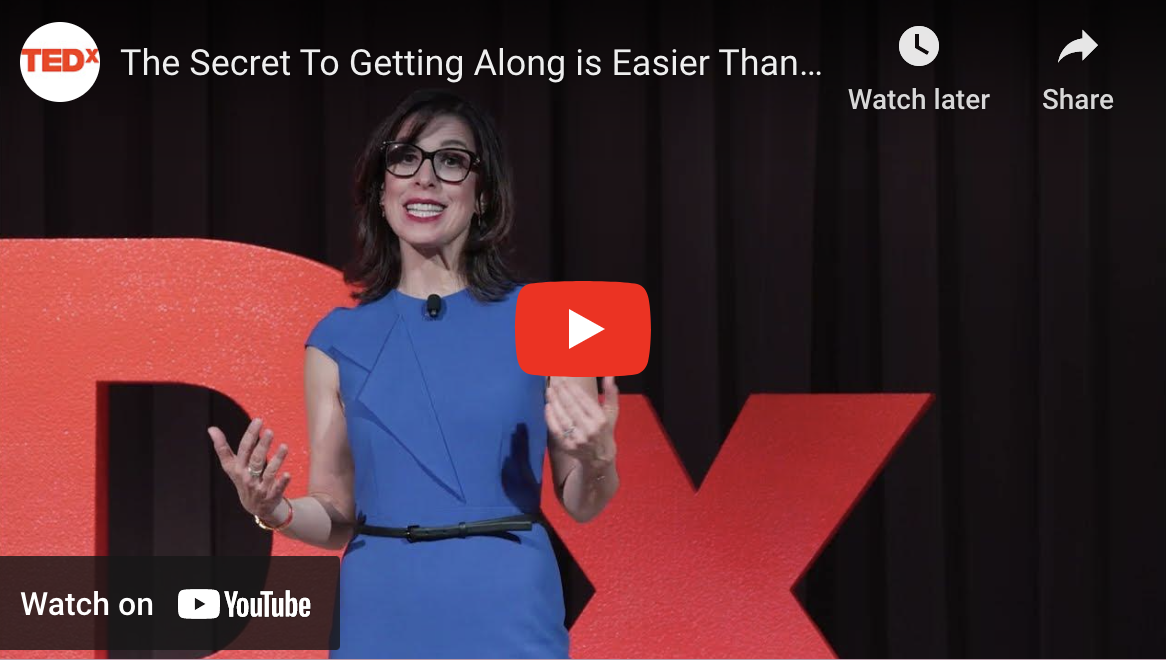5 Ways Perfectionism Can Affect Your Decision To Divorce

We all have been in this overwhelmingly difficult position to decide what will be our next step in our relationship: Stay or Leave?
And on top of being tortured in this dilemma by all the pros and cons of each decision, by weighing and ruminating over every little detail, perfectionism is there to make deciding whether to divorce even more complicated.
Making the decision to end a marriage is difficult enough; many people feel like they need to stay in an unhealthy relationship even without perfectionism.
Fear, regret, and guilt are just some of the reasons why it’s hard to end a marriage.
The fear of leaving an unhappy marriage may stem from worries about uncertainty: perhaps about the children, losing friends or family, being alone, or not being able to cope. On the other hand, having spent a lot of time and energy on your marriage can make you feel regret about wanting to divorce; the longer you have been together, the harder it is to leave. Lastly, many feel guilty about leaving a marriage because they wonder whether they had tried hard enough to save it.
These feelings can be compounded by perfectionism, making it all the more difficult to make a decision on whether you should stay or go. And while it may take longer to move past fear, regret, and guilt, you can begin to do so by untangling yourself from the web that perfectionism can weave around your decision-making. But before we delve into how you can do just that, let’s start from the beginning:
What is perfectionism?
Perfectionism is a highly critical mindset, an overcompensating coping mechanism that consists of the following main features:
- Setting unattainably high standards for yourself (and others). This is also linked to feelings of disappointment and criticism when these standards have not been met
- A hyper-focus on flaws and mistakes made, instead of successes and accomplishments.
- Fear of failing or making mistakes, and feeling ashamed, embarrassed or judged by others for those mistakes
- Projecting a “perfect” and infallible image on the outside while hiding any struggle or imperfection, even from people of trust and closeness
Cost of perfectionism
Often stemming from childhood trauma and perfectionist parents, perfectionism can lead to burnout and strains in relationships. It can lead to having high standards towards a partner or self, being fearful of judgement, comparing your relationship to others, struggling to accept other perspectives, feeling like you can never satisfy your partner, and more.

How does perfectionism affect your decision to end your marriage?
1. Perfectionism focuses on what others want you to do.
Are you staying because you want to? Or is it because of what people/ society will say?
If you are a perfectionist, being fearful of the negative judgement by others can be the main reason for staying in a marriage, instead of the obvious emotional reasons (love, connection, trust, etc). This prevents you from making a decision based on your needs and your feelings, rather than your perceived idea of how others are evaluating you.
2. Perfectionism focuses on what we think is good for the kids.
“What we think we know is best” versus “what is best” can be hit-or-miss at times.
Our expectations and rules for “shoulds” and “coulds” may not be what’s actually beneficial for the kids. We may think that keeping the family together is what the children need, however we would all agree that no child ever needed to be exposed to daily friction, hostility, emotional unsafety, turbulence or misery. Maybe in the short term the children will struggle to adjust to a new reality after their parents’ divorce, but in the long run they will be happy to be parented by calm and rejoiced adults once again.
3. Perfectionism makes us scared to leave a marriage because of the label “fail”.
Ending a marriage can seem — to some — like a failure. As a perfectionist, this is a hard pill to swallow.
At the start of any marriage, we believe that its purpose is to make a life-long commitment. For a perfectionist, breaking this commitment is viewed as incompetence in delivering a perfect “result”. They believe that the outcome of the marriage should be one without flaw. If not, they have failed at marriage.
4. Perfectionism makes us feel guilty.
Feeling that you may not have done enough or did not try hard enough can instil guilt in an individual.
Someone with a perfectionist mindset has higher expectations and standards and therefore tends to overcompensate by staying in the marriage, not because they derive joy and satisfaction from their relationship, but because they don’t want to be held responsible for “breaking” a marriage.
5. Perfectionism makes you hide your true struggle.
As a perfectionist, you have to show to other people the “facade” of keeping it together. You want others to know that you can handle it and that everything is fine.
Unfortunately, this comes at the price of not asking for help when needed; you miss important advice and insights from others; and you go through the end of your marriage all alone.

So, how can you leave perfectionism behind and make the right decision for your marriage?
Here are 4 ways you can overcome perfectionism:
1. Set realistic expectations.
Remember that the standards you are probably setting yourself are too high for anyone — even yourself — to satisfy. No one is perfect. No decision is perfect. We all mess up, and that’s okay.
2. Accept mistakes as learning.
We will all make mistakes. The important part about making mistakes is learning from them. Once you have accepted that mistakes are not failures, you will be able to learn and therefore grow from those experiences.
3. Practice self-compassion.
Self-compassion is the antidote to the poison of perfectionism. Our inner critic has a strong, negative voice that needs to be overpowered by a kind, loving and safe voice. This would be your compassionate self.
4. Take action.
With perfectionism comes procrastination. Procrastination where you drag your feet when needing to make a decision can make making life decisions difficult. The best advice here is to take action and go for it. While you take action, be aware and mindful of your experiences. Remember to pair the hard choices with activities that make you feel better, happy and healthy.
Don’t let perfectionism affect your relationship decisions.
Making a decision when it comes to ending a marriage is one that should not be taken lightly. However, leaving the perfectionistic mindset aside would make the decision-making clearer and it will give you more chances to opt for the choice that best suits your life values, your needs, as well as the people around you.

About the Author
Vassia Sarantopoulou is the Founder, CEO and Head Psychologist of AntiLoneliness, a company offering mental health services in The Netherlands and also worldwide. She is also a Trainer, a Perfectionism Expert and a Mental Health Ambassador, promoting Inner Peace, Mental Strength and Healthy Relationships with others and with our Self. Through AntiLoneliness and her team of psychologists, she offers individual, couples or groups sessions to those who struggle with anxiety, depression, trauma, grief, burnout, loneliness, relationship issues, transition/change, expat life.
Learn more + Connect with Vassia
She is trained in (Group) Schema Therapy and Emotionally Focused Therapy, among other approaches (CBT, ACT, CFT), and she is a member of NIP (Dutch Institute for Psychologists), ICEEFT (International Center of Excellence in Emotionally Focused Therapy) and ISST (International Society of Schema Therapy). She is an advocate of a life without mental health stigma, with an abundance of kindness and with an undying openness to self-awareness and self-growth, and that’s what she promotes through her services and online courses, and also through her collaboration with universities, companies and organizations.
Connect with Vassia
Website: http://www.antiloneliness.com/
You can also check out her Youtube channel, or follow her on LinkedIn, Youtube, Facebook, Instagram, Tiktok, and Pinterest.



About the Author
Vassia Sarantopoulou is the Founder, CEO and Head Psychologist of AntiLoneliness, a company offering mental health services in The Netherlands and also worldwide. She is also a Trainer, a Perfectionism Expert and a Mental Health Ambassador, promoting Inner Peace, Mental Strength and Healthy Relationships with others and with our Self. Through AntiLoneliness and her team of psychologists, she offers individual, couples or groups sessions to those who struggle with anxiety, depression, trauma, grief, burnout, loneliness, relationship issues, transition/change, expat life.
Learn more + Connect with Vassia
She is trained in (Group) Schema Therapy and Emotionally Focused Therapy, among other approaches (CBT, ACT, CFT), and she is a member of NIP (Dutch Institute for Psychologists), ICEEFT (International Center of Excellence in Emotionally Focused Therapy) and ISST (International Society of Schema Therapy). She is an advocate of a life without mental health stigma, with an abundance of kindness and with an undying openness to self-awareness and self-growth, and that’s what she promotes through her services and online courses, and also through her collaboration with universities, companies and organizations.
Connect with Vassia
Website: http://www.antiloneliness.com/
You can also check out her Youtube channel, or follow her on LinkedIn, Youtube, Facebook, Instagram, Tiktok, and Pinterest.


FOLLOW GABRIELLE


DISCLAIMER: The commentary, advice, and opinions from Gabrielle Hartley are for informational purposes only and not for the purpose of providing legal advice or mental health services. You should contact an attorney and/or mental health professional in your state to obtain advice with respect to any particular issue or problem.
- One Edgewater Plaza Suite 304, Staten Island, NY 10305
- 266 Smith Street, Brooklyn, NY 11231
Northampton MA
PHONE:
New York: (917) 905-4553
Boston: (413) 450-0420








